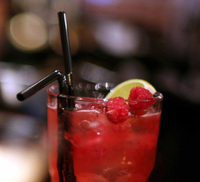Glass is top for taste

If being offered a delicious drink in a plastic cup leaves you feeling as flat as last week’s fizz, you’re not alone.
62% of people prefer to drink from a glass, with 82% of consumers preferring to drink white wine and 74% red wine from a glass too. And it’s not just because glass, whether you drink, pour or serve from it, is great to touch. Glass means you get to taste the drink and absolutely nothing else.
Now a special campaign friendsofglass.org has been created to urge consumers to show their support for glass to ensure it continues to be offered by food and drink manufacturers and retailers.
Unlike other materials, glass does not taint the original taste or quality of the food and drink it contains. It’s inert and completely odourless: that’s why perfume only ever comes in glass bottles – because it doesn’t change the scent.
“Glass has been part of our lives for so long that it is easy to take for granted,” says Rebecca Cocking of British Glass. “Survey after survey show that consumers prefer their food and drink in glass, but unless we make a positive choice for glass, the choice might not always be there”.
Most popularly used for jams, pickles, desserts, wines, spirits and beer, but suitable for any food or drink, glass is the only packaging material that doesn’t need internal coatings or extra layers or additives to protect the quality or taste of its contents. This allows vitamins, nutrients and flavours to be naturally preserved. Drinks stay cool and fizzy longer when kept in glass and because of its integrity, glass is also often first choice for pharmaceuticals.
Environmentally glass is good news too. It is a truly endlessly recyclable packaging material, with a typical glass jar or bottle taking just 30 days to go from recycling bin back as a new container on the store shelf. Making ‘new’ glass from recycled glass also uses up to 40% less energy than making glass from raw materials. “The glass industry is working to reduce its carbon footprint in other areas too, with glass containers now typically 40% lighter than they were 20 years ago” says Rebecca.
To sign up to the campaign to help keep glass on our supermarket shelves, go to: friendsofglass.org

